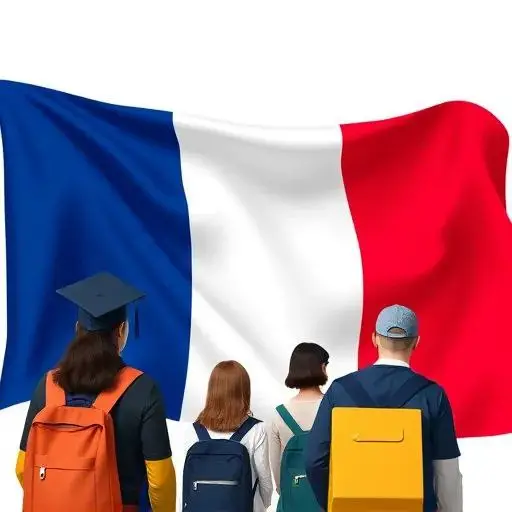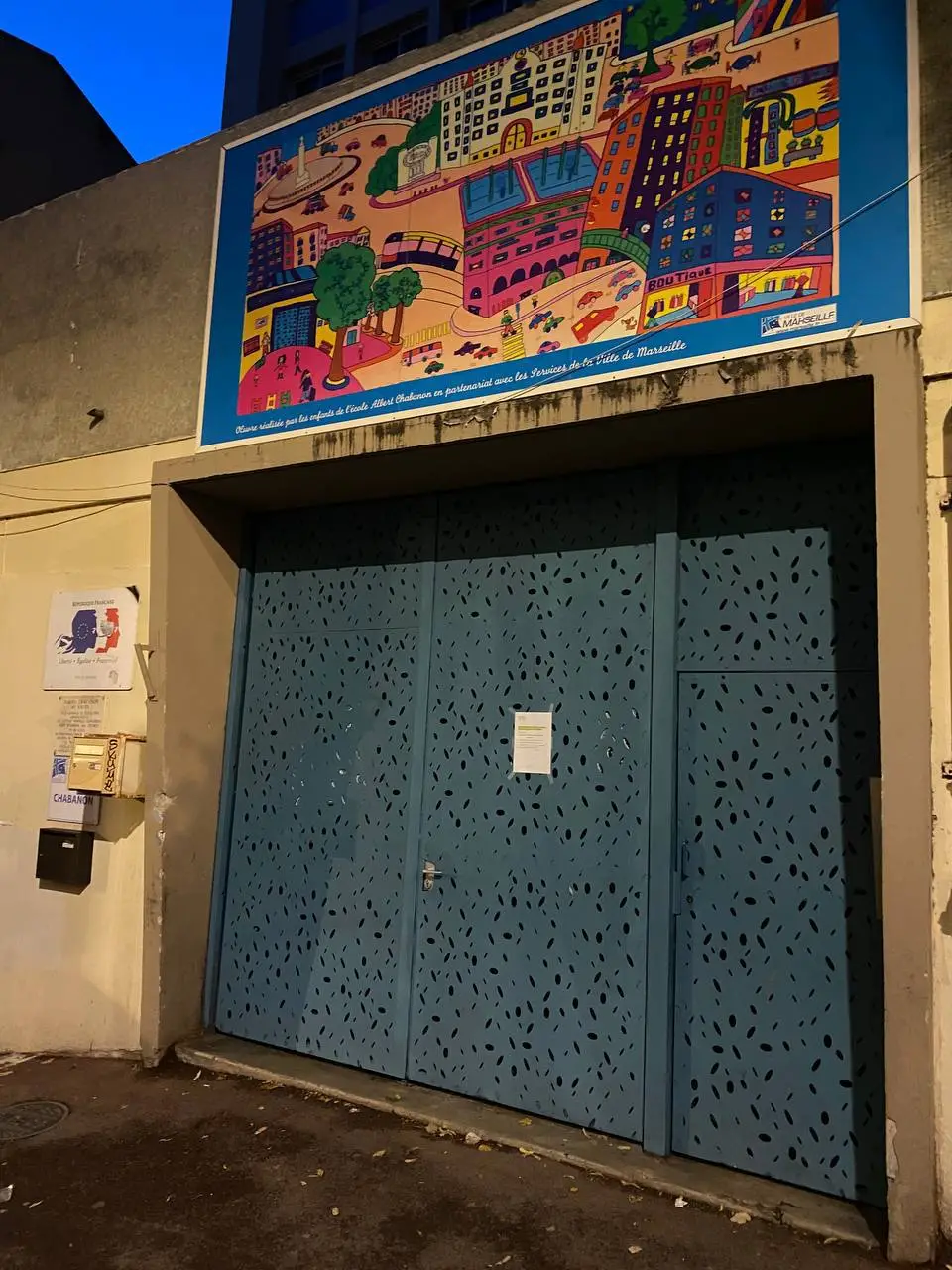French education: why are French educational institutions so special?

The French education system is a world with its own traditions, rules and rhythm of life
Education in France is famous for its centuries-old tradition and high teaching standards. It attracts international students, parents, and teachers from all over the world with its structure and academic discipline. But what makes French schools so unique? In this article, we will look at the key features of the French education system and explain why it is considered one of the most effective in the world.
This education system reflects the country's unique culture and social norms. From the school's architecture to the rules of student conduct, all of this is the result of a long-standing tradition and constant pursuit of academic excellence. Let's dive into this fascinating world of French educational institutions and consider the key points that make them so special.
Historical context of the French education system
The modern French education system dates back to the Great French Revolution. Even then, French educators such as Jean-Jacques Rousseau emphasized the importance of education for the development of the individual and society. Today, the system remains one of the most centralized in Europe, which ensures its stability and versatility.
The structure of French education
The French education system has a clear structure and is divided into three main stages: elementary school (école élémentaire), secondary school (collège) and high school (lycée). It is built on the principle of progressive accumulation of knowledge, which allows students to delve deeper into subjects from year to year. The peculiarity is that after the lycée, graduates take the national exam — the bachelor (Baccalauréat or Bac for short), which plays a key role for further admission to universities. The entire learning process is structured to prepare students for this important exam.
The visual aspect: how schools talk about French culture
French schools vary greatly in appearance, from historic buildings in small towns and villages to modern structures in the heart of Paris. School architecture often reflects cultural values: "traditional French schools" retain refined elements of classical design that convey respect for the country's history and culture.

For example, the school in Mourioux, in a small village, looks more traditional with classic stone facades and a large school yard where students can play, while the school in Marseille, like many other schools in the south of France, has open spaces for outdoor activities. It is part of their culture, where the combination of nature and education is considered important for children's development. Anastasia, whose child studies at the Marseille school, notes:
"I really like the school in France. The lessons with the children are extremely exciting: they sing a lot with the children, draw directly on the walls, and mathematics is taught through various games. The teachers here are extremely interesting and creative. The children are often taken on excursions, for example to parks, which makes the learning process even more exciting. I also like that they have a long break: a whole hour and a half, during which the children can have plenty of fun and rest. In addition, they do not give much homework, which allows them to spend more time together and do their favorite things hobbies. And I also want to note that in France every Wednesday is a day off for children, I personally had such a dream as a child".
Kindergartens and nurseries
Education in France starts very early. Children can go to kindergarten from the age of 1-2, which allows parents to combine work with education. They then move on to kindergarten (école maternelle), where the focus is on social skills, motor development and language skills. Anna, a mother of two children, shares her experience about the nursery:
"Regarding kindergarten and crèche: it was extremely difficult to get into the crèche, but we were lucky and there was a place for our son. Mixed groups, there are still very small children who do not know how to sit yet, they are placed on the floor on their mothers, there are children, who have just learned to stand and walk. The adaptation period lasts 2 weeks, where in the first week the child is brought for only 30 minutes, and in the second week they are left for 2 hours".
Educational projects: from insects to agriculture
One of the bright features of French schools is educational projects that go beyond the classrooms. Schools often organize projects on the topic of ecology, agriculture, and nature. For example, projects on the study of insects or agriculture (in particular, growing vegetables or keeping chickens) allow children to learn in practice and save the school budget on the costs of feeding students. This not only develops their knowledge of biology, but also helps them develop skills of independence and responsibility.
Trade unions and the education system
The French education system is closely related to the trade union movement, this was revealed in an interview with a Ukrainian teacher who spoke about her experience working in a French kindergarten. Teachers in France are well protected by their unions and their rights are defended through regular strikes and negotiations with the government. For example, many schools are periodically closed due to teacher strikes, which often becomes a topic of discussion among parents and students alike.
Organization of the school day
Usually, the school day in France lasts from 9:00 a.m. to 4:30 p.m. It's quite a long time, but there are several breaks throughout the day and time for lunch. For younger students, walks in the school yards or even studying nature in the school gardens are organized.
School bus: the main form of transport
In rural areas, many children use the school bus to take them to and from school. This allows parents not to worry about transport, and children get used to autonomous movement from an early age.
Prohibitions and rules of conduct
French schools have strict rules, including banning the use of mobile phones during classes. Parents are also prohibited from entering school premises without prior permission to promote safety and discipline. In addition, taking pictures of children at school is prohibited without written parental consent, underscoring the importance of privacy.
Vacations, holidays, and leisure
French schoolchildren have clearly regulated vacations. In a year, children rest for more than two months, divided between autumn, winter and spring vacations. During the holidays, schools also organize various activities and cultural festivals, where students participate in theater productions or organize charity brocantes (sale of old things).
Homework and behavior zone
French students have homework as part of their academic training. However, in the younger stages of learning, there is a clear separation between school and home life to ensure children have opportunities for leisure. Schools also have "behavior zones" where students who break discipline can be moved from a green zone to an orange or red zone.
Balance between private life and work
Teachers in France also face challenges in finding a work-life balance. One of my daughter's teachers, responding to my letter, noted at the end:
"Par respect des principes sur l'équilibre vie privée / vie professionnelle, les mails envoyés ou reçus le soir ou le week-end n'appellent pas de réponse immédiate", which translates as: "Out of respect for the principles of balance between personal and professional e-mails sent or received in the evening or on weekends do not require an immediate response".
That's all you need to know about how teachers and after-hours are treated with respect here.
Colleges and high schools
Daria, Anna's eldest daughter, studies at a college in the city of La Souterraine and compares the system with the Ukrainian one:
"The educational process at the college lasts from 9:00 a.m. to 6:00 p.m., during the day there is a 2-hour break, which is good on the one hand, but on the other hand, you get tired after a whole day at school. Lessons are also longer than in Ukraine, and last 55 minutes. The use of mobile phones is completely prohibited. The food in the canteen: sometimes they give fries, pizza. There are creative classes where we draw and sculpt . Physical Education has a full year program that includes running, badminton, volleyball, and rock climbing. The territory is closed: students have diaries with photos that allow or forbid them to go outside the territory on their own. I have a green category, I can decide whether to go home for lunch and also go home from college."
Introductory campaign
To enter a French university, you must have completed high school and have a diploma equivalent to the French Baccalauréat. International students must provide a language certificate such as DELF/DALF (level B2) or IELTS/TOEFL for English-language programs. You also need to apply through the Parcoursup platform or directly to the university, provide a letter of motivation, recommendations, and sometimes go through an interview or take additional exams for certain specialties.
French universities: the path to an international career

French universities are known for their high level of education and attract students from all over the world thanks to affordable prices and a wide choice of programs. Master's programs, which are available in both French and English, are especially popular. The education system provides deep specialization, which allows students to prepare for professional activities or scientific careers. Vera, who studied for a master's degree at the Sorbonne, shares her experience:
"I had the chance to study for a master's degree in France at the Sorbonne University, where I was able to gain a lot of experience and knowledge, expand my horizons and meet students from all over the world, with some of whom I have remained friends and we still keep in touch. I fondly remember my time studying at the center of the French capital, where every pebble is a witness of exciting and turbulent history. During the internship period, I tried to take advantage of every opportunity to visit a museum, an exhibition or some event, and in Paris there is something to see, something to admire and something to be inspired by! After receiving my diploma, I worked in a foreign representative office in Ukraine and had the opportunity to visit France already for work. The knowledge of the language and the experience gained helped to quickly get a nomination for emigration to Canada, where I currently live and work, and most importantly, I was able to realize myself professionally in accordance with my profession and the diploma obtained at the Sorbonne. I am grateful to my fate for this chance! I wish success to all those who dream of higher education in France"
Various scholarships are also offered to foreign students, which allows to significantly reduce the costs of studying and living in France.
The French education system combines centuries-old traditions, high academic standards and modern teaching methods. It provides pupils and students with comprehensive development, taking into account both academic and social aspects. From nurseries to universities, education in France is aimed at forming independent, well-educated individuals who are able to successfully integrate into the global world. Foreign students, in particular Ukrainians, highly appreciate the opportunities provided by French education, which contributes to the development of an international career and opens new horizons.
French education is not only a ticket to knowledge, but also a key to new perspectives. It helps you find yourself, unlock your potential and become part of the global community. So, if you dream of an education in one of the most prestigious countries in the world, don't be afraid to take the first step — France opens its doors to those who are ready to learn, create and change the world.











